the somaliland recognition roadshow
starring somaliland, usa, uae, ethiopia and with special guest, israel!
Over the past year, a quiet but coordinated marketing push has been trying to sell a new Israel–Somaliland recognition framework, essentially an extension of the Abraham Accords model, this time in the Horn of Africa. The pitch goes like this: Somaliland is a “rare island of stability” with a prime location on the Gulf of Aden. Israel, they say, needs a foothold in the Red Sea to secure shipping lanes and counter “malign actors” like Iran and the Houthis. Put the two together and you get mutual recognition, security cooperation, and shiny new ports.
EXAMPLE 1: Atlantic Council, Gateways to the Red Sea: The case for Israel–Somaliland normalization, By Amit Yarom
EXAMPLE 2: The Times of Israel, Israel-Somaliland strategically bonded. By Mohamoud Hussein Nour
It’s the kind of sanitized language think tanks and friendly media love: gateway, prosperity, stability. But strip away the coating, and it’s obvious what’s actually being marketed, Somaliland trading military access and political loyalty to Tel Aviv in exchange for international recognition.
This is not diplomacy rooted in shared values. It’s transactional geopolitics, brokered by the same powers already using the Horn of Africa as a chessboard: the United Arab Emirates, the United States, and Israel itself.
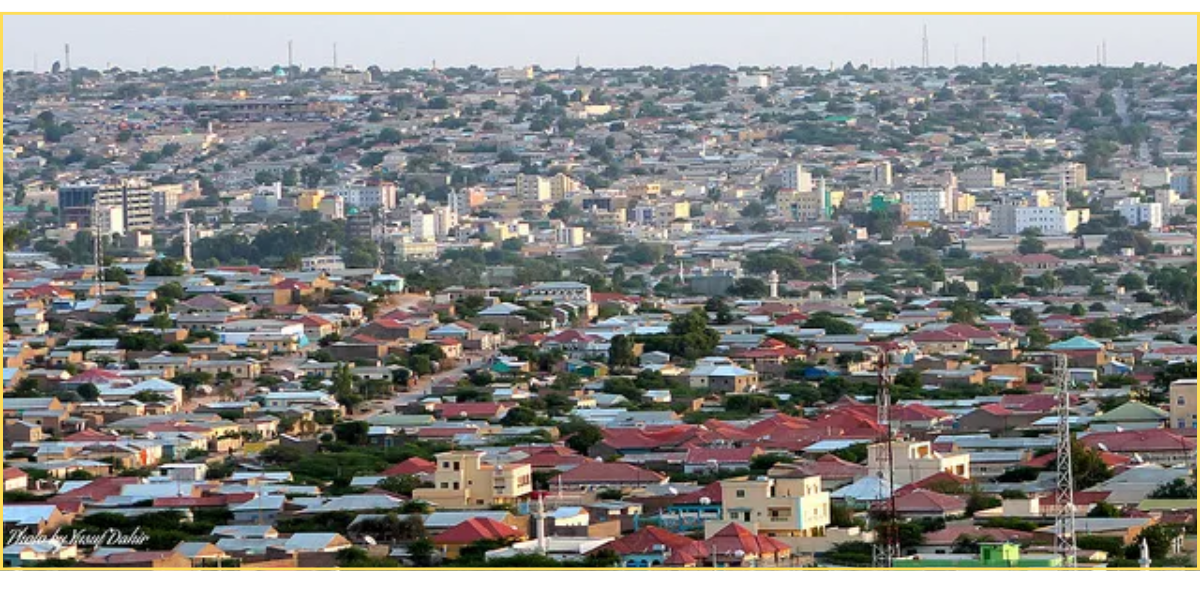
the pr script
STEP 1: Call Somaliland “stable” and “democratic” while downplaying its ongoing internal conflicts and its crackdowns on dissent.
STEP 2: Frame recognition as “mutually beneficial” without mentioning that it comes with the price tag of becoming a forward operating base for Israel and its allies.
STEP 3: Bring in the UAE as the trusted broker, conveniently the same UAE that already controls major infrastructure in Somaliland and trains its military.
STEP 4: Avoid mentioning the domestic backlash that will erupt in Somaliland (and across Somalia) the second this deal goes public.
the uae connection
The UAE has spent years embedding itself in Somaliland, taking control of Berbera Port through a multimillion‑dollar concession, upgrading the airport, and quietly training security forces. None of this is charity, it’s all leverage. Each runway upgrade, training program, and logistics hub increases Hargeisa’s dependence on Abu Dhabi. Since 2017, Berbera has doubled as a launch point for Emirati operations in Yemen and as part of a broader strategy to dominate Red Sea trade routes and the Bab al‑Mandeb chokepoint.
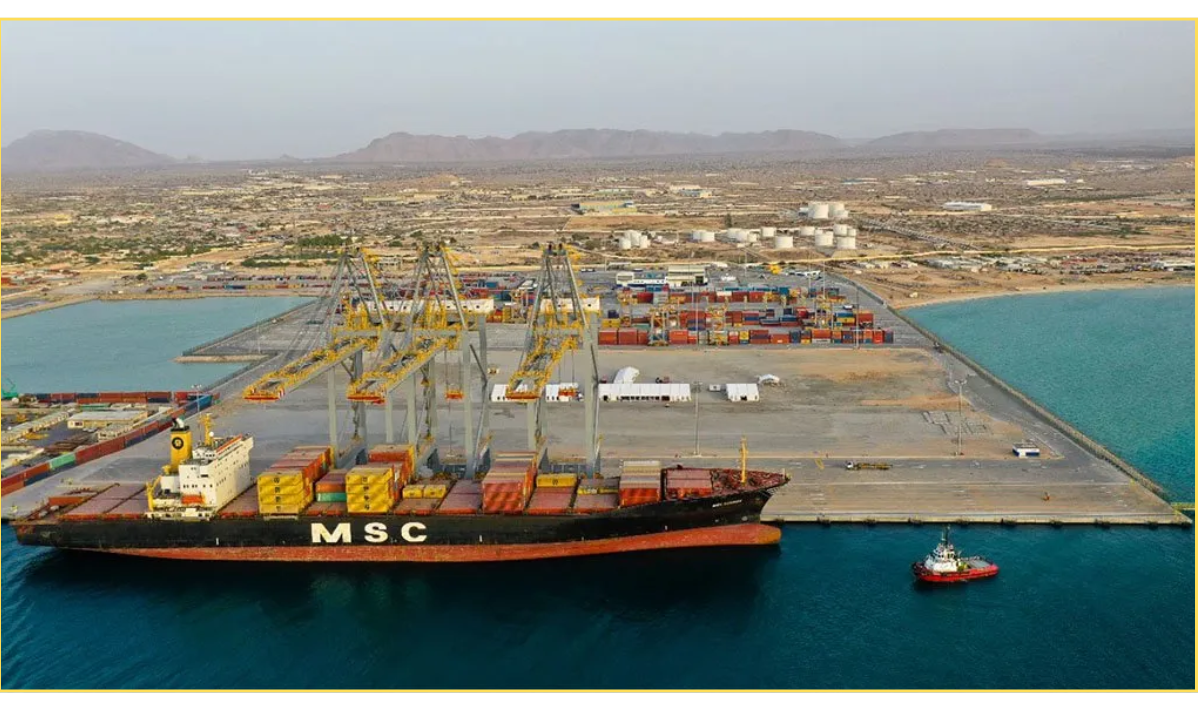
According to leaks and investigative reporting from outlets such as Emirates Leaks, Abu Dhabi has gone further by proposing and offering to fully fund an Israeli military and intelligence base in Somaliland. Sources say the UAE pitched the idea by promising that Tel Aviv would recognize Somaliland in return, framing it as part of a wider plan to extend Emirati influence across the Gulf of Aden and the Horn of Africa, from Somalia and Djibouti to Ethiopia, Eritrea, Sudan, and Kenya. This builds on earlier moves: a 30‑year lease for Berbera Airport, DP World’s $101 million and $440 million port expansions, and ongoing training of Somaliland’s security forces since 2018.
Under President Irro, the ties have only tightened. His decision to make the UAE his first and second foreign visit, including attending the World Government Summit in Dubai, underlines Abu Dhabi’s central role in Somaliland’s foreign policy. Emirati investment is matched by strategic goals: reports from Israeli, Arab, and regional media suggest the UAE is actively brokering and financing the Israeli base plan, offering funding and political cover in exchange for access that would let Tel Aviv target Houthis in Yemen, monitor the Bab al‑Mandeb Strait, and gain strategic depth against Iranian‑aligned forces.
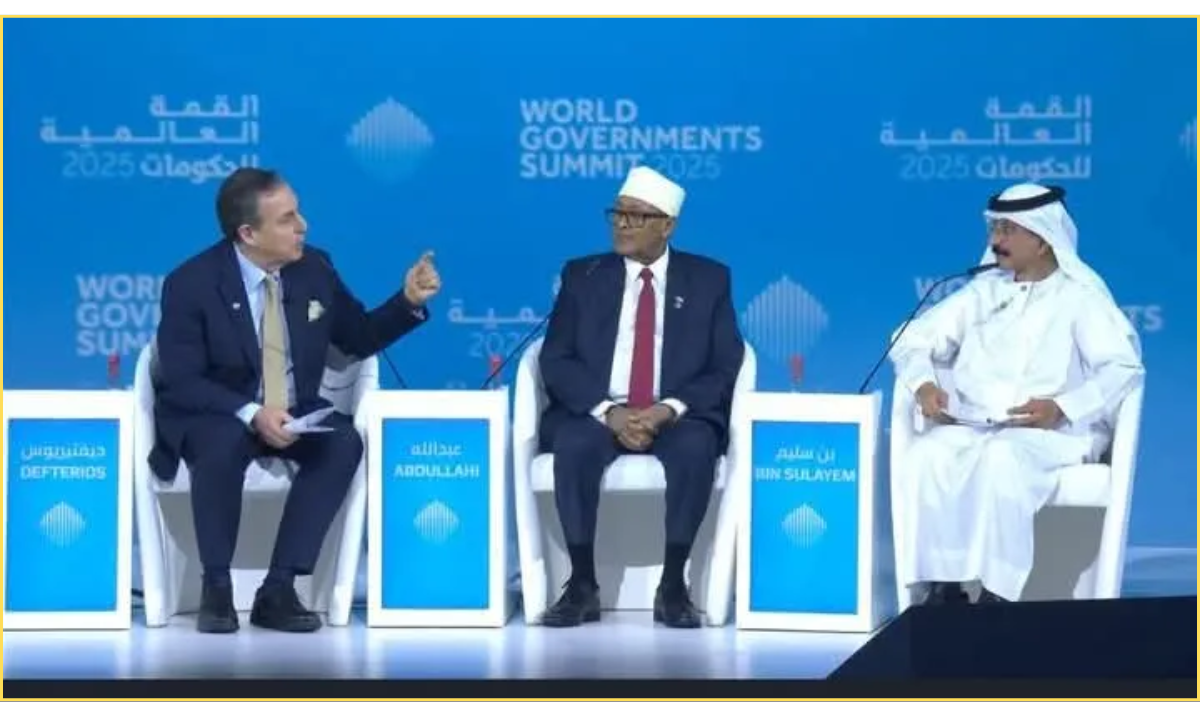
This fits within Abu Dhabi’s wider military network, which includes a joint base with Israel on Yemen’s Socotra Archipelago. It cements the UAE’s position as the region’s key powerbroker, locking Somaliland into its Red Sea and Gulf of Aden security framework, countering rivals like Turkey and Qatar, and straining relations with Mogadishu. For Israel, it’s a forward operating post without the optics of direct confrontation. For Somaliland’s ruling elite, it’s the recognition they’ve chased for decades. For ordinary Somalilanders, it’s handing over strategic assets to foreign powers for token diplomatic gains, with the added danger of becoming a frontline in someone else’s conflict and a flashpoint in an already volatile maritime corridor.
the internal reality
Behind the “island of stability” branding lies a fractured and increasingly unstable political landscape, with clan rivalries at its core. Somaliland’s political map is deeply shaped by clan dynamics: the Isaaq clan dominates Hargeisa’s power structure, while non‑Isaaq communities, particularly the Dhulbahante in Sool, the Gadabuursi in Awdal, and the Warsangeli in eastern Sanaag, have long felt sidelined.
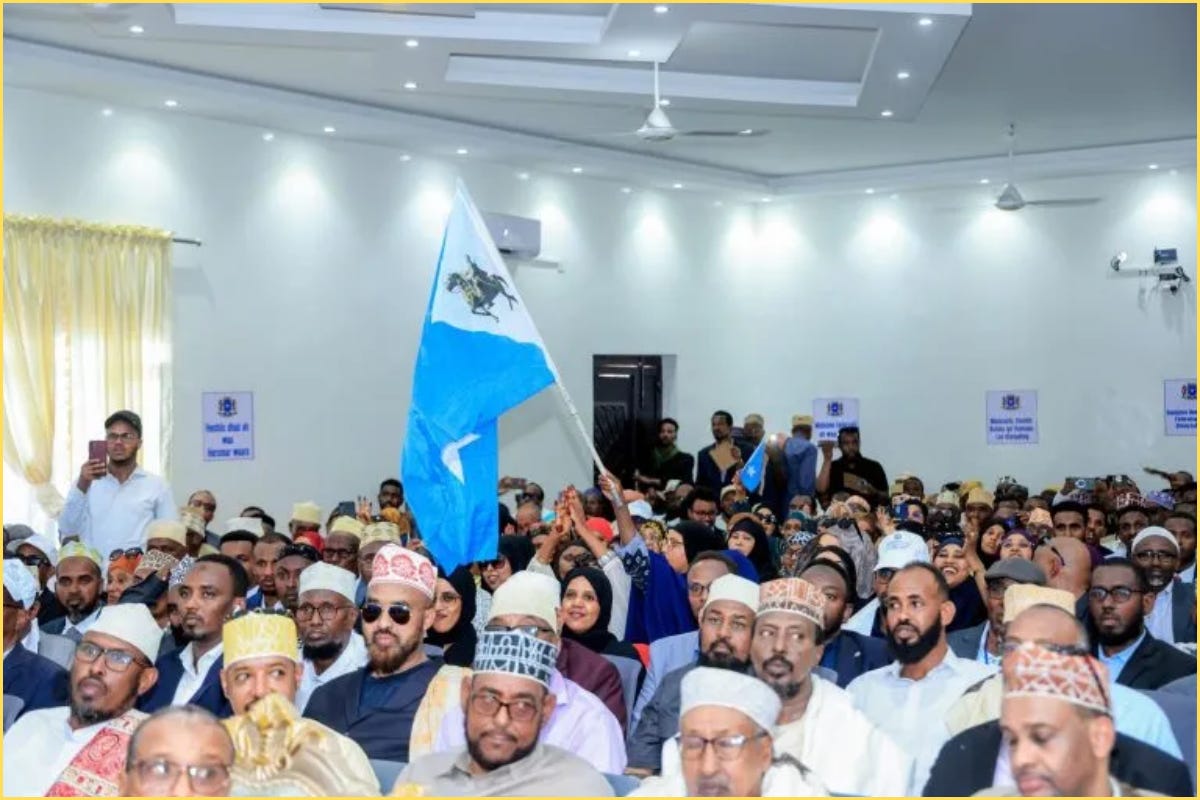
In Las Anod (capital of Sool), a long‑simmering dispute over Dhulbahante representation and rejection of Isaaq‑led authority exploded again in 2023, killing over 340 civilians, wounding hundreds, and displacing more than 150,000. UN and NGO reporting has documented indiscriminate shelling, siege tactics, and rights abuses that bolstered the SSC–Khatumo movement, which Mogadishu formally recognized as a federal member state in October 2023 and which, by July 2025, had reconstituted itself as the North Eastern State of Somalia.
In Awdal, longstanding Gadabuursi frustration was reignited by the Ethiopia–Somaliland sea access MoU signed last year. To many locals, it confirmed decades of perceived political sidelining, economic neglect, and exclusion from decision‑making. Those grievances have now coalesced into the Awdal State movement, a direct challenge to Hargeisa’s authority.
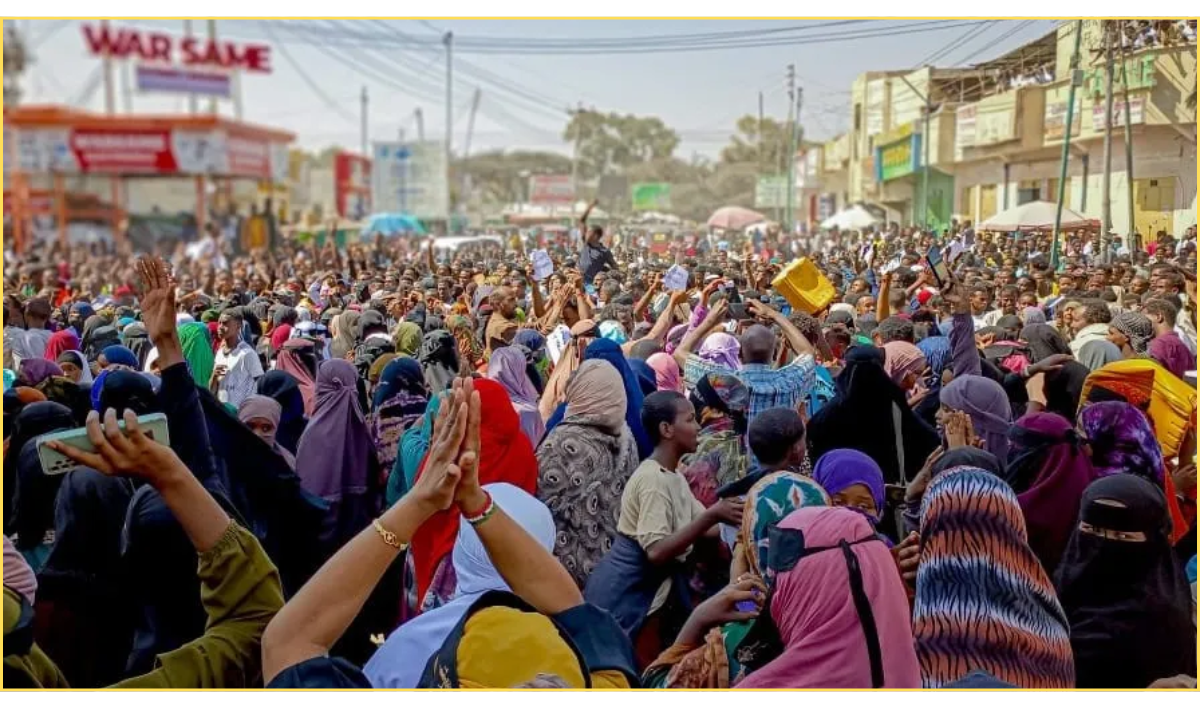
Protests rejecting Hargeisa’s unilateralism have been met with security force crackdowns, further deepening clan mistrust. In Sanaag and Togdheer, clashes between Warsangeli and Isaaq communities in Erigavo and Jiidali in December and January displaced tens of thousands, while in Burao, Togdheer’s capital, worsening economic hardship and governance disputes spilled into street protests, which has been met with live fire that killed several demonstrators. These are not isolated flashpoints but part of a broader backstory of contested legitimacy and center–periphery grievances, where clan identity often dictates political allegiance.
Somaliland’s leadership is gambling on recognition deals over solidifying a unified base, risking backlash in a society still split by deep clan divisions and unresolved conflicts. Without the internal cohesion and stability needed for genuine independence, these moves rest on shaky ground, no matter how polished the PR narrative.
why this will backfire
Who’s pushing this and why: In Hargeisa, the push comes straight from the top. President Abdirahman Mohamed Abdullahi, known as “Irro,” has made recognition the defining promise of his presidency (He was sworn in Dec 2024).
For years, Somaliland’s leadership has chased statehood through African Union lobbying, diaspora advocacy, and courting sympathetic states, from Addis Ababa to London, but without success. Irro’s current diplomatic courtship of Washington, Abu Dhabi, and by extension Jerusalem, reflects a shift toward a last‑resort strategy: if traditional allies won’t deliver recognition, then even controversial partners are on the table. Working alongside him, Foreign Minister Abdirahman Dahir Adan has signaled that normalization with any state willing to advance Somaliland’s strategic and political aims is an option. Adan has even entertained Gaza‑related “humanitarian” proposals, using his portfolio to quietly test base‑for‑recognition formulas, probably not because normalization with Israel is his first choice, but as a reluctant fallback he’s prepared to take if no other state will deliver the recognition Somaliland seeks.
Beyond Somaliland’s own leadership, the real muscle sits with UAE power brokers like DP World’s Sultan Ahmed bin Sulayem and Abu Dhabi’s security establishment. By controlling Berbera Port, the Economic Zone, and much of the training pipeline for Somaliland’s armed forces, they’ve made themselves the indispensable brokers for any recognition deal. For the UAE, it’s about locking in its Red Sea presence and quietly opening the door for Israeli access without taking public heat. At the same time, U.S. and Israeli envoys, backed by friendly think tanks, have been running low‑key outreach on resettlement and basing rights, pushing out polished “stability” narratives in op‑eds and reports to make the policy path look inevitable.
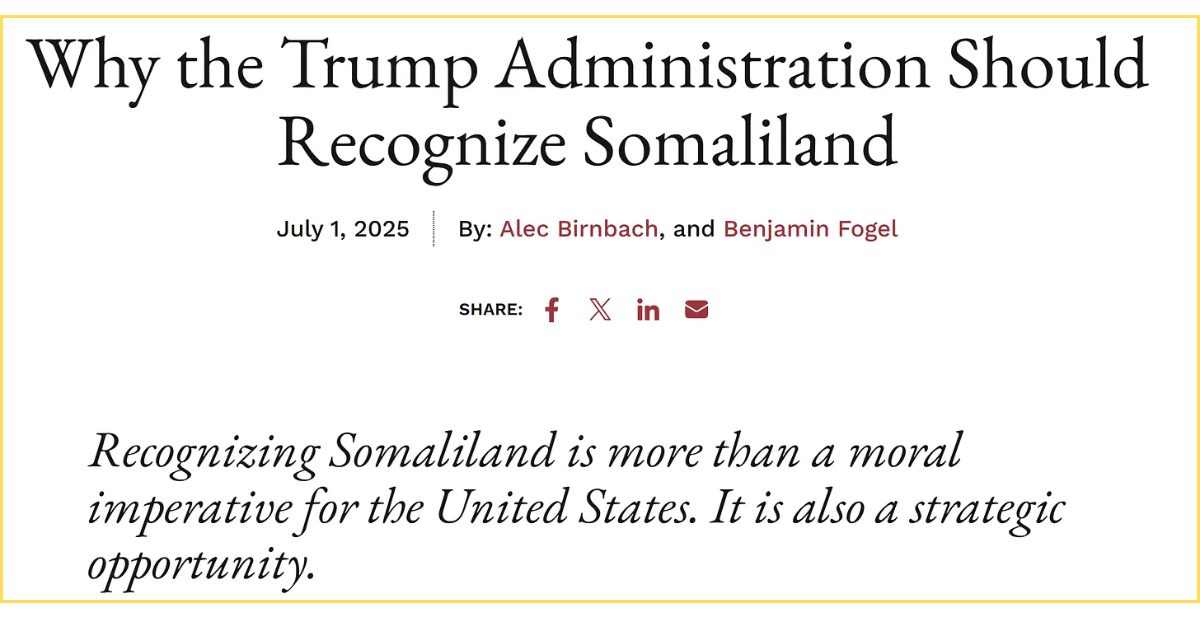
How do Somalilanders feel about Israel: There’s no formal polling from Somaliland, but across Somali society the default stance is overwhelmingly pro‑Palestinian, rooted in religion, anti‑colonial solidarity, and decades of political alignment with the Palestinian cause. In Somalia proper, this has meant mass Gaza solidarity rallies; in Somaliland, there have been visible signs too, from clerics’ sermons to student‑led events, diaspora statements, and online campaigns. Even without large‑scale street protests, public sentiment flared when officials toyed with Gaza “relocation” proposals, prompting immediate backlash across Somali media and community channels. The reaction was swift enough to force official denials and reversals. Whatever divisions exist among the political elite, the wider public mood remains firmly pro‑Palestinian.
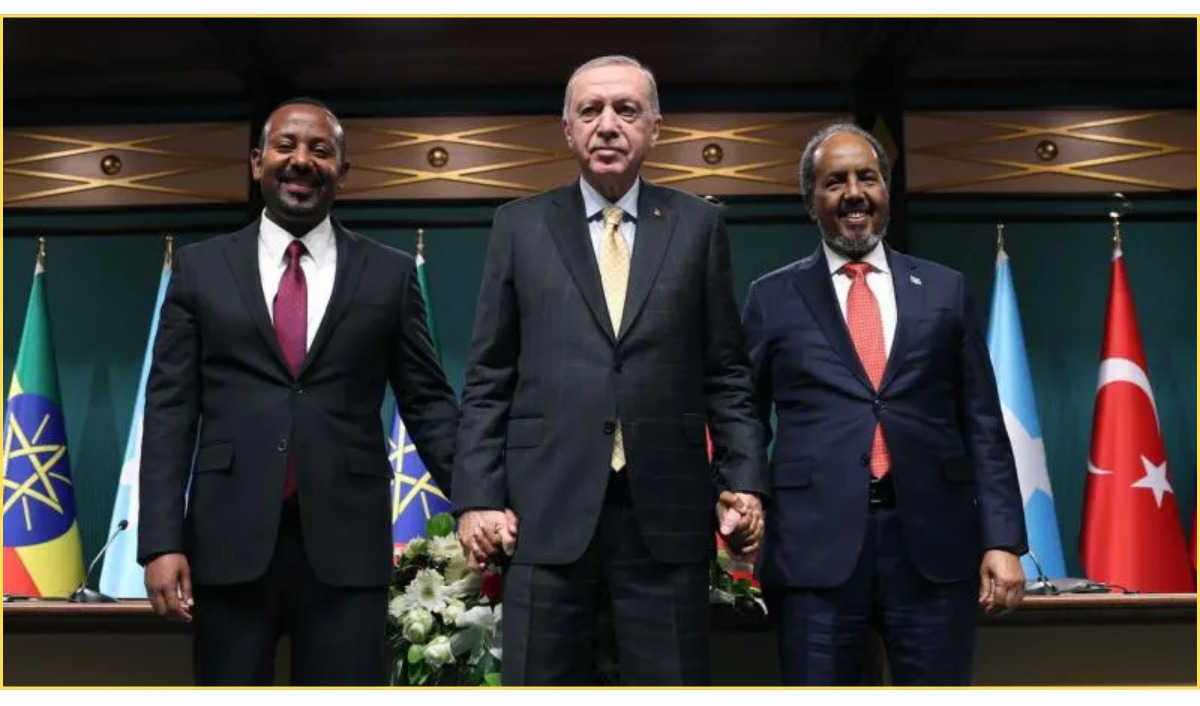
Any move that looks like military alignment with Israel, even under a “humanitarian” or “maritime security” banner, will be read by many Somalilanders as siding against Palestinians. That would invite protests, deepen elite fissures, and hand ammunition to rivals. Turkey, Iran, and Somalia would all treat such a deal as hostile, with Ankara bolstering Mogadishu’s military capacity and Iran’s partners able to threaten Somaliland indirectly via the Houthis just across the Gulf of Aden. The African Union’s One Somalia policy ensures diplomatic censure, as Ethiopia’s 2024 MoU with Hargeisa already demonstrated. Domestically, Las Anod’s war has produced a rival federal entity, Awdal’s movement is gaining strength, and Burao has already seen deadly crackdowns. Layer on the pro‑Palestinian street mood and there is no credible mandate for an Israel‑branded security deal. Push it, and expect fresh unrest, defections, and further fragmentation of already thin governance.
could trump recognize somaliland?
Recent developments have injected fresh momentum, and controversy, into Somaliland’s decades-long quest for recognition. At a peace agreement ceremony between Azerbaijan and Armenia, U.S. President Donald Trump was asked about reports that Hargeisa had signaled willingness to accept displaced Gazans in exchange for U.S. recognition. He responded cautiously: “We’re looking into that right now. Good question, actually, and another complex one, but we’re working on that right now.” While avoiding a definitive answer, Trump’s remarks marked a rare public acknowledgment from a sitting U.S. president that the matter is under review.
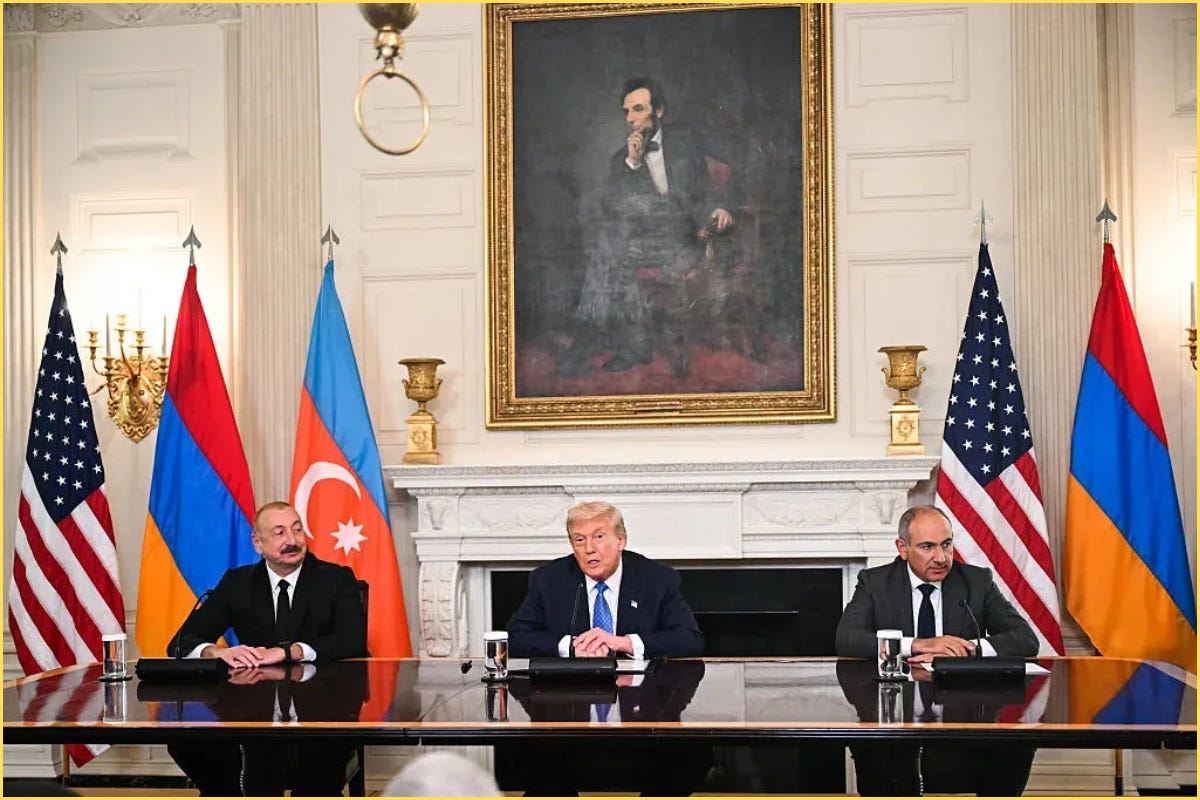
The query came after Somaliland’s President Irro floated an expansive offer to Washington: long-term U.S. basing rights in the strategic port city of Berbera, plus access to valuable mineral resources such as lithium, in return for formal recognition. In a Bloomberg interview, Irro touted “good relations” with the Pentagon and State Department, and that Somaliland was “open for business”, casting Trump as a “business‑minded” leader who could be persuaded by strategic and economic incentives. His messaging was Somaliland is ready to make any deal if it means breaking the diplomatic stalemate.
This is the first time a U.S. president has publicly spoken about Somaliland in such a transactional, high‑stakes context, signaling a possible break with decades of the One Somalia policy. If pursued, recognition could be embedded in a broader three‑way arrangement: Emirati control of Berbera’s port operations and surrounding economic zone, potential Israeli military and intelligence access to both port and air facilities, and coordinated U.S.–UAE–Israeli maritime patrols and monitoring in the Red Sea and Gulf of Aden. In this framework, Washington would be an active participant, leveraging Berbera as a forward operating site, integrating it into CENTCOM’s regional posture, and using the UAE–Israel security network to project influence against rival powers like Iran (also the Houthis) and China while reinforcing shipping lane security. Such a shift would not only roil relations with Mogadishu and its allies but also deepen Washington’s entanglement in a UAE–Israel security axis now anchoring itself across the Horn of Africa.
all in?
If Somaliland’s leadership goes ahead with this, it could mark the beginning of the end for the self‑declared republic. The patrons pushing this arrangement, the UAE foremost, but increasingly the United States as well, are willing to take that gamble, but it is the Somaliland government itself that is staking its survival on the promises of foreign sponsors.
Recognition from Washington would not be a symbolic gesture; it would lock Somaliland into the U.S. security architecture in the Red Sea, bind it to American military priorities, and make it part of a UAE–Israel–U.S. axis whose objectives have little to do with local development or sovereignty. Any deal involving Israel would supercharge regional hostility, alienate pro‑Palestinian publics, and give adversaries, from Mogadishu, Ankara to Tehran, new pretexts to undermine Somaliland.
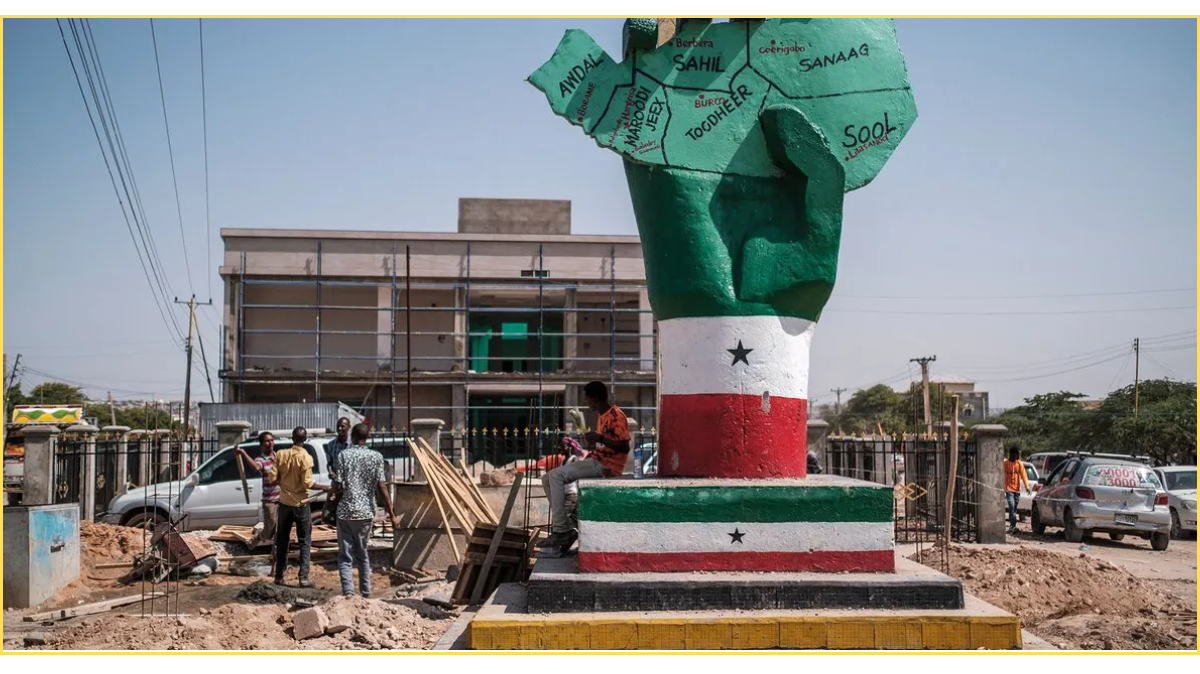
In effect, this is not about peace or prosperity; it is about transforming the Horn of Africa into a forward operating theater for foreign wars. And the people of Somaliland? They will be left to live with the political fallout, the security risks, and the erosion of their own agency long after the PR headlines fade.


